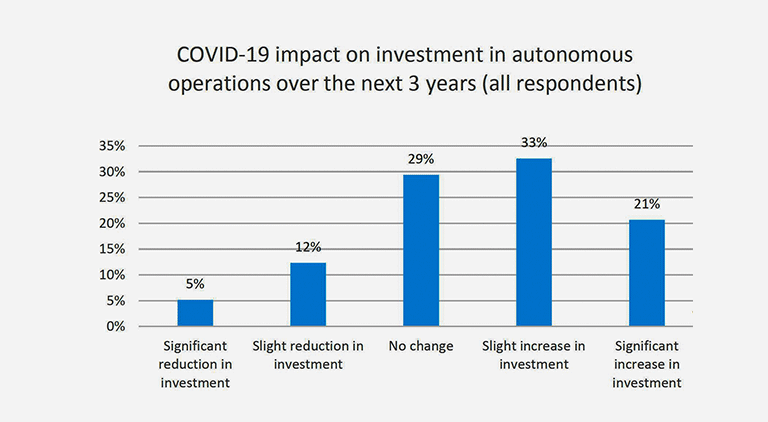COVID-19 to accelerate investment in industrial autonomy
By EPR Magazine Editorial October 3, 2020 2:53 pm IST
By EPR Magazine Editorial October 3, 2020 2:53 pm IST

Yokogawa Electric Corporation revealed the results of a global end-user survey on the outlook for industrial autonomy, which shows that 64 percent of respondents from companies in process industries are anticipating fully autonomous operations by 2030. The survey provides an in-depth view of future trends in automation and autonomy, business priorities, and technologies being deployed in key process industries including oil and gas, pharmaceuticals, chemicals, petrochemicals, and power generation.
Key Insights
Companies are moving to fully autonomous operations by 2030, and will invest in technologies that aid decision-making
Sixty-four percent of respondents stated that they expect to reach autonomous operations in their primary operations by 2030. Eighty-nine percent said their companies currently have plans to increase the level of autonomy in their operations. Regarding their current status, 64 percent said that they are conducting or are piloting semi-autonomous or autonomous operations, while 67 percent expect significant automation of most decision-making processes in plant operations by 2023. Cybersecurity (51 percent), cloud, analytics, and big data (47 percent), and artificial intelligence (42 percent) are three key areas in which companies are planning significant investment over the next three years. These will enable organizations to make better decisions across a greater span of control.
COVID-19 has put the brakes on economic growth in 2020 but will be a catalyst for the medium-to long-term growth of industrial autonomy.
COVID-19 has arguably presented a great impetus for industrial autonomy moving forward. A higher priority is now being placed on the ability to continue running operations without workers needing to be present. A majority of respondents are expecting to increase their investment in autonomous operations as a direct result of COVID-19.
Respondents were also asked to rank the top four applications in which they were directing investment as a result of the COVID-19 pandemic. Unsurprisingly, remote operations and remote servicing came out as two of the key applications for which priorities have increased, with a respective 36 percent and 30 percent of participants selecting them. The ability to conduct work without the need for workers to be present in a hazardous environment provides significant safety and cost benefits.
Regional trends“From this research study, we have confirmed our perception that the shift from industrial automation to industrial autonomy, which we call IA2IA, is going to gain momentum over the next decade. As COVID-19 will accelerate this trend, and companies’ interest in introducing related technologies continues to be strong, Yokogawa can support customers in strengthening their competitiveness step by step based upon our roadmap to autonomous operations,” said Tsuyoshi Abe, senior vice president and head of the Marketing Headquarters at Yokogawa.
Yokogawa believes the digital transformation of companies’ manufacturing and production operations will lead towards autonomous operations; the results of the survey demonstrate that companies are prioritizing and investing in the technologies of tomorrow in order to make this a reality.
Two-thirds of process industry companies are anticipating fully autonomous operations by 2030, finds a survey by Yokogawa Electric
We use cookies to personalize your experience. By continuing to visit this website you agree to our Terms & Conditions, Privacy Policy and Cookie Policy.